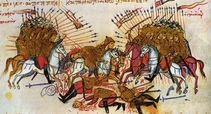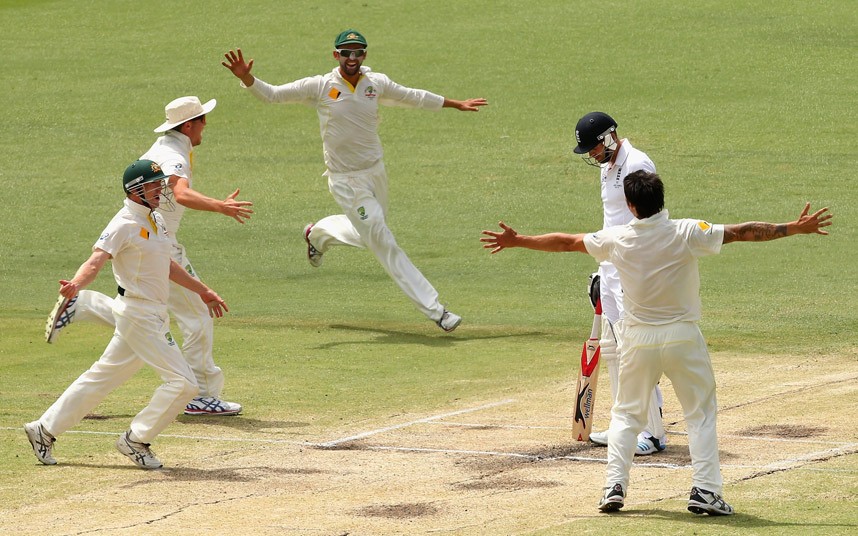Two of my favourite speeches come from the late 11th Century. They read as match reports for England's disastrous Ashes performance; they offer some clues and advice for the beleagured captain, Alastair Cook.
The sources do not tell us in so many words that he perspired little (like Alastair Cook), but they give the same impression of an ability to stay unruffled as things kicked off around him. This may have had something to do with the fact that, as one medieval source explains, 'his mother had instilled the fear of God instilled into him while still a boy' - which strikes a chord with Cook's training as a chorister at St. Paul's Cathedral (deadly rivals of my old alma mater, Westminster Cathedral Choir).
You are blessed with great personal skill, sire, said the nominated speaker, Theophylact of Ohrid (who knew where his bread was buttered). Alexios, he went on, has been glorious and prudent in all his decision-making - the Emperor knew where his off-stump was, in other words. His personal bravery has been awesome to behold - or, here is a many who does not back away from seriously fast bowling, but who leads from the front. Little wonder your squad has been so successful in the field. For Byzantium 1088 read England in the late summer of 2013.
So far so good.
Where he had once been able to inspire and get the best out of mercurial and often erratic figures like Nikephoros Melissenos and Nikephoros Diogenes (a Graeme Swann and KP figures respectively), he now found himself presiding over a group of tricky characters whose hearts were no longer in it. All these stars, said John the Oxite, Patriarch of Antioch, to Alexios, had become too big for their boots. What is more, he said, they were too busy thinking about their own interests and careers (there was no IPL or Big Bash in Byzantium, but there were plenty of distractions to get you to take your eye off the ball). All these big shots had once been great; now they had blocked promising youngsters from coming through. Everyone was exhausted by the goings-on. The big cheeses were not part of the problem, said John; they were the problem.
While I suspect a few might have cornered Alastair Cook to say something along these lines, i doubt any came up with John's coup de grâce that he then delivered to the stunned captain of the good ship Byzantium. You see, he said, staring at the Emperor: things have gone wrong because God has abandoned you.
This was powerful stuff - and dangerous too, given the Emperor's supreme authority: criticising imperial rulers had to be done very, very carefully. And this was neither careful or subtle.
To Alexios' credit, he played this jaffer with the straightest of straight bats and did not flinch before the onslaught as John the Oxite continued.
What is more, he listened.
 Next stop for Kevin Pietersen: Room with a View ?
Next stop for Kevin Pietersen: Room with a View ? The bad news for Cook: not all those who went did so quietly. Several bided their time, waiting for the right moment to assassinate the Byzantine skipper.
These days, such assassinations are figurative, done in the press, rather than in poorly-lit corridors. So you never know what will happen next. But what the example of Alexios shows us is that when things take a turn for the worse, they keep deteriorating. And as the Emperor realised, prayers to make difficult decisions do go away are seldom answered. What is needed is action.
So, if John the Oxite, Patriarch of Antioch, were alive and kicking today, he'd be re-reading his notes before standing up to talk this evening. And he would not pull his punches. He'd also be making sure there were a few empty spaces in some well-appointed monasteries for some of these stars of the past to spend time contemplating past glories.
(By the way, i've written about these two speeches - without mentioning cricket - in an article called Where Advice Meets Criticism in 11th century Byzantium: Theophylact of Ohrid, John the Oxite and Their (Re)Presentations to the Emperor', in Al-Masaq vol. 20 (2008))





 RSS Feed
RSS Feed